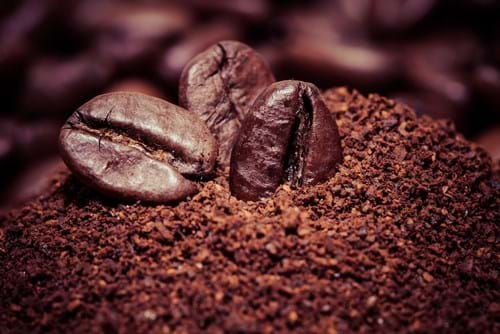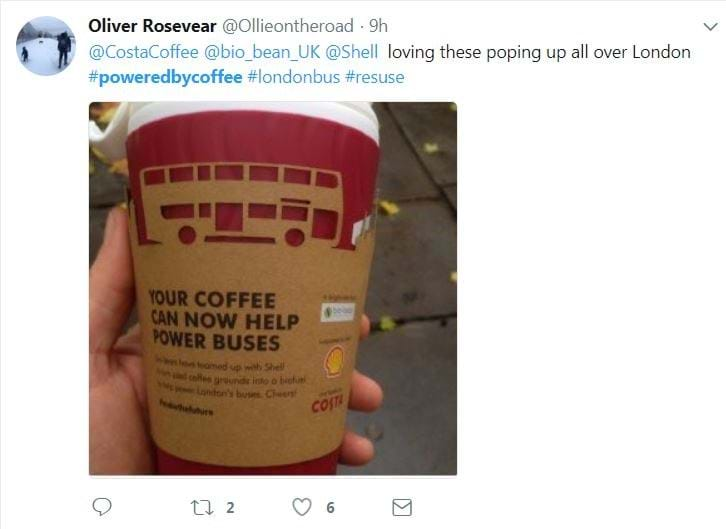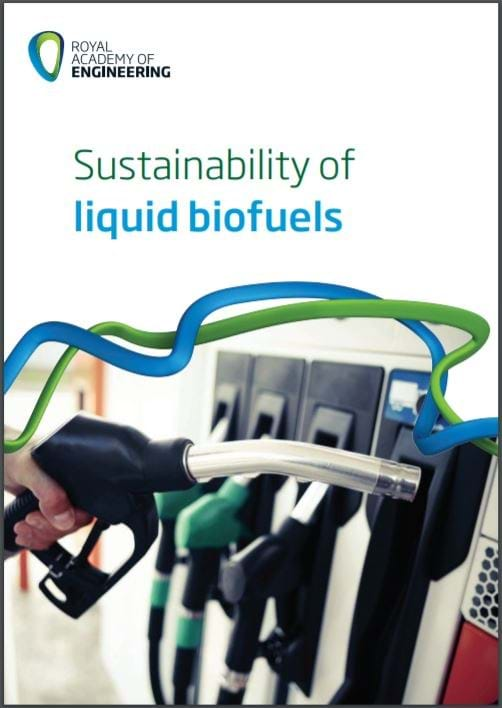Was your commute today #poweredbycoffee?
21st November 2017

Bio-Bean has a number of products in it's growing portfolio, but it is it's B20 biodiesel that has been hitting headlines, and powering London buses from today.
The biodiesel is made by extracting Coffee Oil from the 500,000 tonnes of waste coffee grounds the UK produces each year. It is then blended with other fats and oils, before Argent Energy blends it with mineral diesel to create a fuel that produces 10-15% less carbon emissions. Bio-Bean was introduced to Argent Energy this month, through Shell's #makethefuture initiative.
Check out the video:

This is a big step towards helping to mitigate climate change, and according to Royal Academy of Engineering is just the beginning of our increased reliability on biofuels.
Sustainability of liquid biofuels, a report launched earlier this year, stressed the need to incorporate second generation biofuels from wastes to help reduce CO2 emissions.When it was published, IChemE Fellow and Chair of the report's working group, Professor Adisa Azapagic said:

Transport for London (TfL) are leading the way in terms of biofuel adoption. Prior to using coffee fuel, it had already started using fuels made from cooking oil and tallow (a by-product of meat processing).
So who are the chemical engineers that form part of the Bio-Bean team? IChemE Fellow Ben Mills-Lamptey is the company's Chief Technology Officer, and Dianne Mitchell is the Engineering Director.
Dianne has worked in coffee for most of her career, and since graduating from University of Bath with a Master's in Biochemical Engineering she has worked at Kraft Foods, Mondelez and Jacobs Douwe-Egberts.
Find out more about the Bio-Bean team here.
Do you want to be #poweredbycoffee? Bio-Bean also produces and sells 'Coffee Logs' for domestic use. Perfect for this time of year as you cosy up to an open fire, or chiminea they contain 20% more energy than wood but are much more eco-friendly.
Each log is made from the grounds of 25 cups of coffee. They are100% carbon neutral, diverting waste away from landfill and reducing harmful greenhouse gas emissions. Watch the Coffee Logs video here.